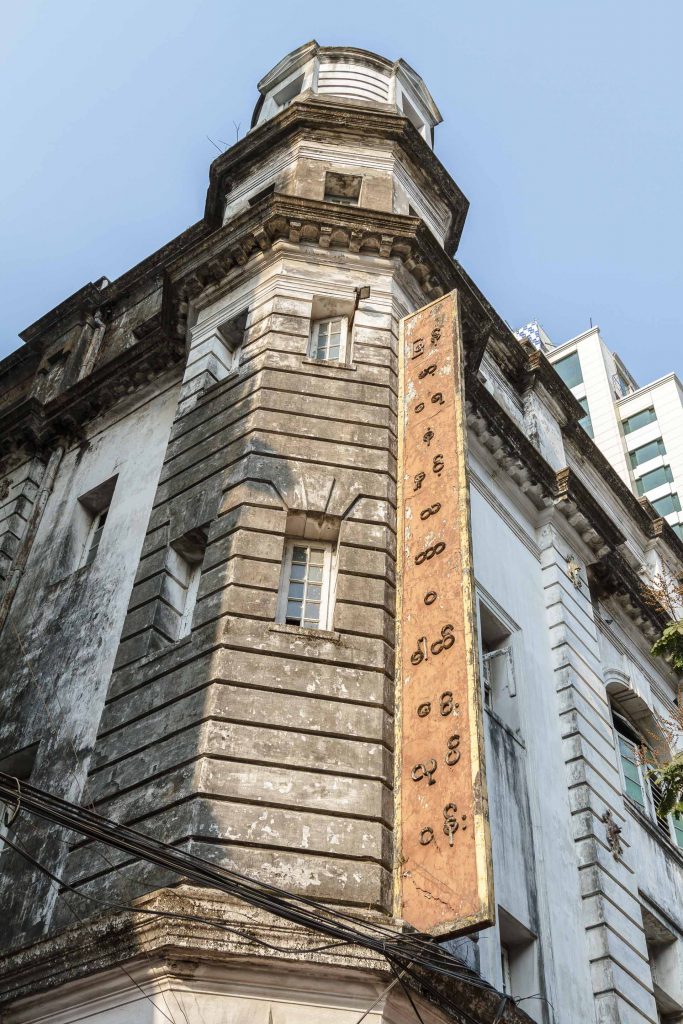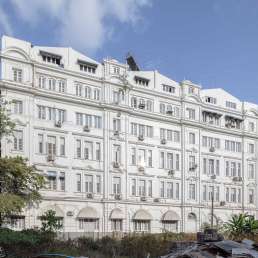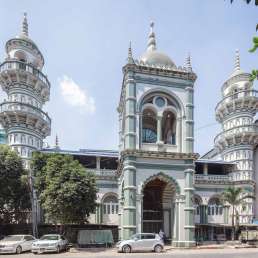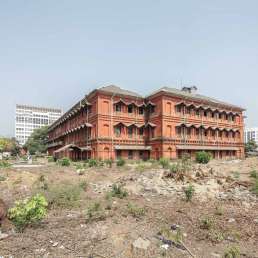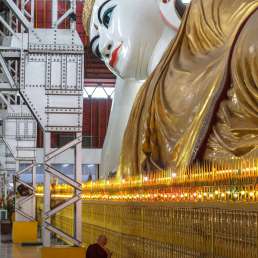Formerly: Burmah Oil Company
Address: 604-608 Merchant Road
Year built: 1908
Architect: Robinson & Mundy (contractors)
Built as an office for the Scottish trading firm Finlay, Fleming & Co., this elegant building later became the Rangoon headquarters for the Burmah Oil Company (BOC). Two towers flank its sides. The four-storey edifice has two entrances with porticos covering the entire pavement. It once dominated this section of the road—but today, it looks a little lost between a large condominium building and one of the Centrepoint Towers.
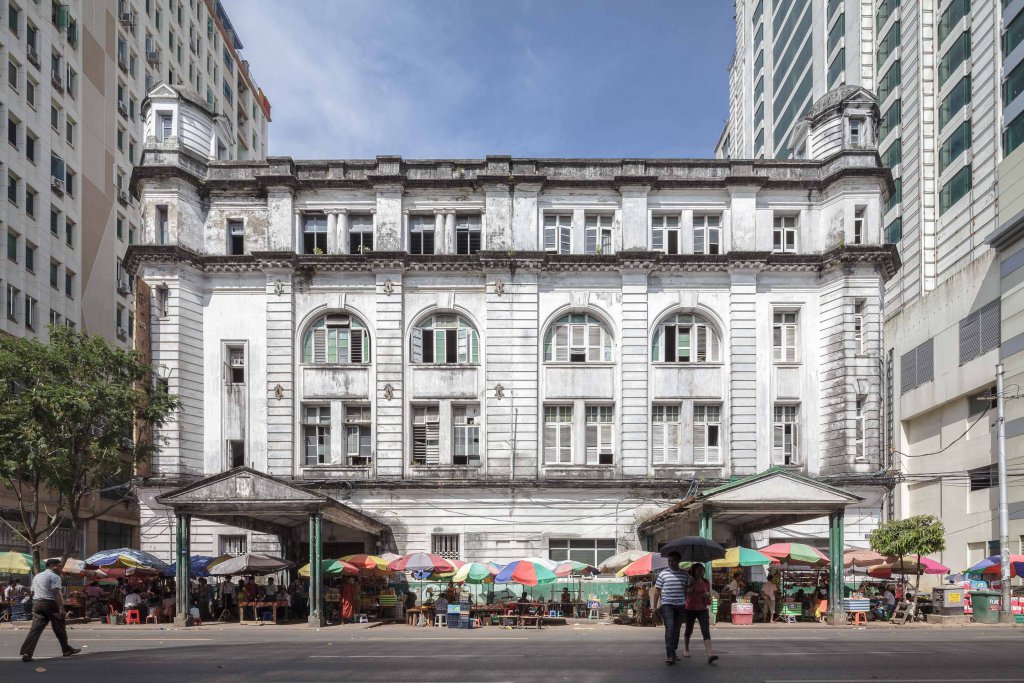
Along with rice and teak, oil was another of Burma’s key resources to become exploited by the colonial enterprise—and BOC enjoyed a virtual monopoly. Before the advent of electricity, the company’s candles and kerosene lamps lit homes not just in Burma but around the world. BOC’s heyday was in the 1920s, when it was one of Britain’s largest industrial firms by revenue. At the time, its operations spanned large parts of the British Empire. BOC’s main agent in Burma was Lim Ching Tsong, whose palace in Bahan township was evidence of the riches that oil could already command at the time. After the war, the business was downscaled and the building on Merchant Road shared premises with a nursing home, known as San Pya Clinic. Burmah Oil was nationalised in 1963 and would eventually become Myanma Oil and Gas Enterprise (MOGE). Today, MOGE’s headquarters are inside the Ministry of Energy in Naypyidaw, while the Yangon building is mostly empty. There is evidence of basic repairs made in the wake of Cyclone Nargis in 2008. (Heritage buildings vacated by the government proved to be especially vulnerable to the cyclone.) In front of the building, the street bustles with market and food stalls as several bus lines terminate here.
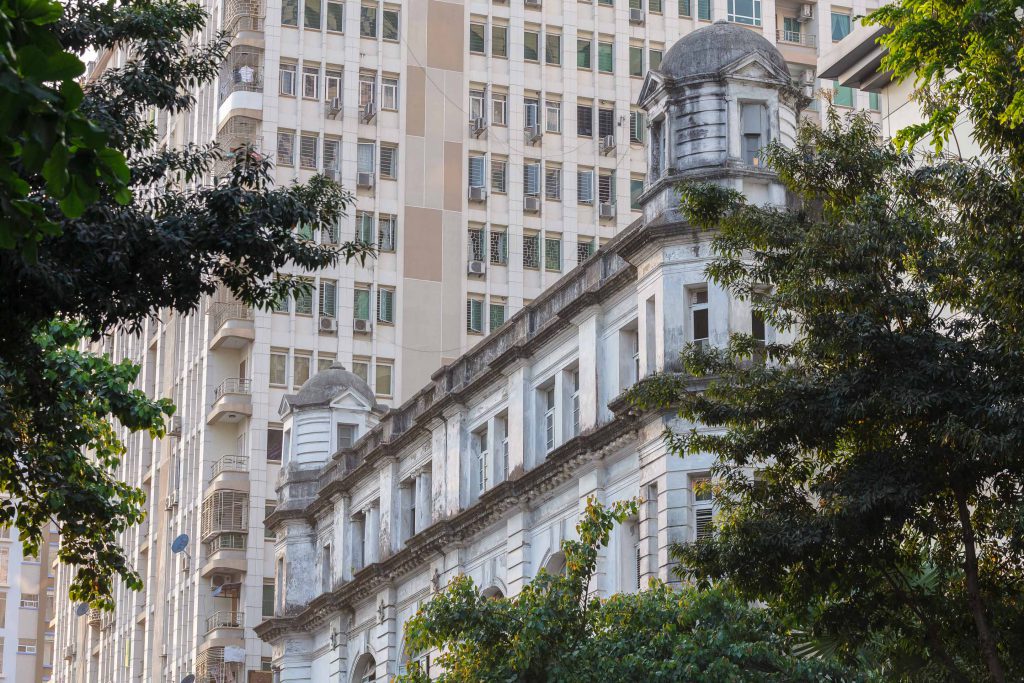
While no exact measures of Myanmar’s current oil and gas reserves exist, some believe them to be sizeable. Recent licence auctions have seen a “who’s who” of the global oil industry partner with local Myanmar companies for their slice of the pie. Some more obscure entities are also getting involved, and in many cases the award of a licence is not known to the public. Civil society organisations have lamented the lack of transparency in the process. One of these, Global Witness, undertakes investigations to uncover this information.
